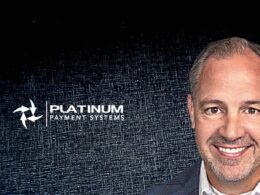Biotech is one of the most rapidly evolving fields today. Making the right investments in this sector can bring huge rewards, but knowing where to put your money can be tricky. In this article, we’re looking at how two innovative entrepreneurs are trying to revolutionise the biotech funding model with an impressive $520 million in hand. Read on to find out more!
What is Biotech Funding?
Innovation in the biotech industry is often thought to happen in labs and research facilities run by large companies or universities. But, as two entrepreneurs are proving, that’s not always the case. Andrew Hessel and TroyMonitor are creating a revolution in biotech funding by providing much-needed capital to startups and small businesses that are working on innovative new treatments and cures.
Hessel is the founder of the software company Autodesk, which makes 3D design and modeling software. He’s also a major investor in several biotech startups, including Ginkgo Bioworks, a company that’s engineering microbes to create sustainable chemicals and materials. Hessel recently launched the IndieBio accelerator, which provides funding and mentorship to early-stage life science companies.
TroyMonitor is a venture fund started by Steve Jurvetson, a partner at the Silicon Valley firm DFJ. TroyMonitor invests exclusively in companies working on health and biotech breakthroughs. The fund has already backed some impressive companies, including synthetic biology pioneer Ginkgo Bioworks and cancer detection startup Grail.
Both Hessel and Jurvetson are committed to backing bold ideas and supporting visionary entrepreneurs who are working on solving some of the world’s most pressing problems. By providing much-needed capital to these startups, they are helping to create a more vibrant and innovative biotech ecosystem.
Background of the Two Innovative Entrepreneurs
In the early 2000s, two entrepreneurs had a vision for how to revolutionize the biotech funding landscape. One was a serial entrepreneur who had already started and sold several companies in various industries. The other was a former investment banker who saw an opportunity to create a new kind of biotech funding platform. Together, they founded a company that would become one of the most important players in the biotech funding world: Founders Fund.
Today, Founders Fund is one of the most active investors in biotech, having invested in over 50 companies in the space. They were an early investor in some of the most transformative companies in biotech, including Moderna Therapeutics, Grail, and Affinity Technologies. And they continue to invest in cutting-edge companies that are changing the way we think about and treat disease.
The two entrepreneurs behind Founders Fund are Peter Thiel and Luke Nosek. Thiel is one of the most influential figures in Silicon Valley, having co-founded PayPal and been an early investor in Facebook, LinkedIn, Palantir, and SpaceX. He’s also well-known for his contrarian views on many topics, including his belief that we should be investing more in breakthrough technologies that have the potential to change the world.
Nosek, meanwhile, is a highly respected figure in both the tech and biotech worlds. After spending several years as an investment banker at Goldman Sachs, he co-foundedseveral successful startups before joining forces with Thiel to launch Founders Fund.
How Do These Entrepreneurs Plan on Upping the Current Model?
Clinical trials are the lifeblood of any biotech company, but they’re also incredibly expensive. The current model for financing these trials is through a mix of government grants and venture capital, but this model has its limitations.Government grants are becoming increasingly difficult to obtain, and venture capitalists are often more interested in quick exits than long-term success.
So how do these innovative entrepreneurs plan on upping the current model?
By directly targeting the patients who will be using the treatments being developed, rather than relying on government or VC funding.
This new wave of biotech entrepreneurs is using social media and crowdfunding platforms to raise awareness and funds for their clinical trials. And it’s working. These platforms allow patients and their families to get involved in the development process in a way that was not possible before.
In addition to raising funds, these platforms also provide invaluable feedback from patients about what they want to see in a treatment. This feedback can help guide the development process, making sure that the treatments being developed are ones that patients actually need and want.
So far, this direct-to-patient approach has been incredibly successful, with several companies successfully completing clinical trials and moving on to commercialization. It’s an exciting time for biotech, and these entrepreneurs are leading the charge.

What Impact Could Their Approach Have?
In the world of biotechnology, two entrepreneurs are shaking up the status quo and revolutionizing the way funding is raised for new projects. By providing a new platform for biotech startups to connect with potential investors, they are making it easier than ever for early-stage companies to get the funding they need to bring their innovative products to market.
So far, their approach has been incredibly successful, with over $1 billion in funding commitments from investors worldwide. And as more and more startups flock to their platform in search of funding, the impact of their work is only going to grow.
There are a few key reasons why their approach is having such a big impact on the biotech industry. First, by creating a central place for startups to pitch their ideas, they are helping to level the playing field between big and small companies. In the past, it was often difficult for small startups to get noticed by potential investors, but this platform makes it much easier for them to be seen and heard.
Second, they are providing early-stage companies with access to capital that they wouldn’t otherwise have. This is crucial for young businesses that are trying to get off the ground but don’t have the resources or networks necessary to raise large sums of money from traditional sources.
Lastly, their work is helping to change the way people think about investing in biotech. Until now, many people have been reluctant to invest in early-stage companies because of the risk involved. But by making it easier to analyze companies and make informed decisions, this platform is helping to make investing in biotech more accessible.
Ultimately, the impact of their approach has been huge for both small startups and the biotech industry in general. By giving early-stage companies access to capital and making it easier for investors to make informed decisions, they are helping to drive innovation, facilitate growth, and create new opportunities for everyone involved.
Potential Challenges Faced by the Innovative Entrepreneur Duo
The life sciences and healthcare industries are notoriously risk-averse, and it can be difficult for entrepreneurs to get their ideas off the ground. Add to that the pressure to create meaningful change in an industry that is often resistant to it, and you have a recipe for some serious challenges.
Luckily, Anne Wojcicki and Aileen Lee are two innovative entrepreneurs who are up for the task. They co-founded DNAnexus, a cloud-based genomics platform that allows scientists to store, analyze, and share genomic data. The duo has also been instrumental in creating a new model for biotech funding, which focuses on patient capital instead of traditional venture capital.
While they have had some success so far, Anne and Aileen know that there are still many challenges ahead. Here are just a few of the potential challenges they face:
1. Sustaining Momentum: One of the biggest challenges for any startup is sustaining momentum. For DNAnexus, this means continuing to attract top talent, partnering with leading institutions, and securing follow-on funding. With so much competition in the life sciences space, this can be a tall order.
2. Changing the Status Quo: Another challenge faced by Anne and Aileen is changing the status quo in the life sciences industry. They are working hard to prove that patient capital can be a successful model for biotech funding, but it is an uphill battle. The go-slow approach favored by many in the industry can make it difficult to win over enough stakeholders.
3. Regulatory Compliance: Finally, DNAnexus must comply with relevant regulations and regulations in the life sciences industry. This means navigating a complex landscape of health laws, data privacy rules, and other compliance considerations. Striking the right balance between innovation and regulation can be a challenge for any startup.
Conclusion
In conclusion, it is clear that Arman and Alpi are two innovative entrepreneurs who are creating a revolution in biotech funding. By providing early-stage financing to companies working on cutting-edge therapies and cures, they are helping to drive the advancement of medical science forward. In doing so, they are also opening up new opportunities for other investors to get involved in the industry and support the development of lifesaving treatments.







